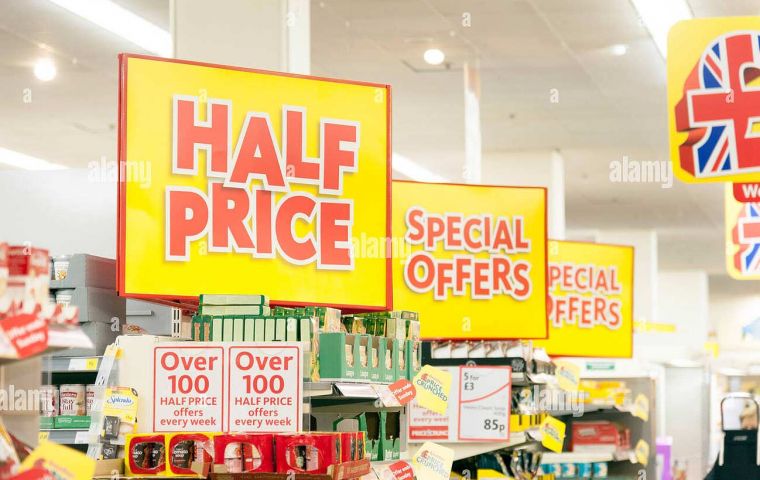MercoPress. South Atlantic News Agency
Increase in food costs for the average UK household because of Brexit, LSE paper Brexit a
 The LSE research found the increase in food prices was due to a rise in “non-tariff barriers” to UK/EU trade like new customs checks at the borders and paperwork
The LSE research found the increase in food prices was due to a rise in “non-tariff barriers” to UK/EU trade like new customs checks at the borders and paperwork Brexit added £210 to the average British household food bill in the two years to the end of 2021, according to a new academic paper from the London School of Economics (LSE), with price rises hitting the poorest families.
This was particularly evident because the cost of food imported from Europe went up because of extra red tape and checks. Rule changes for items going across the border had pushed food prices up by 6%, or £5.84bn overall.
Researchers at the LSE's Centre for Economic Performance (CEP) looked at data tracking the flow of trade and prices of food products between the UK and the European Union (EU) to work out how shoppers were being affected by the UK's exit.
It also found that price rises hit poorest households hardest because they spend more of their pay packets on food and UK producers had faced reduced competition since Brexit.
The calculations sought to isolate the effects of Brexit and separate them out from other supply chain issues that caused disruption during the pandemic.
The research found the increase in food prices was due to a rise in “non-tariff barriers” to trade between the UK and the EU, which included things like new customs checks at the borders, new paperwork requirements and broader measures affecting the movement of animals and plants.
Although the extra checks didn't come into force until 2021, one of the co-authors of the research, Nikhil Datta, said it was likely firms made “anticipatory” changes around the “hard Brexit” pursued by former prime minister, Boris Johnson.
Mr Datta added that these non-tariff barriers should be a “first-order concern” for politicians and policymakers.
The paper also looked at the cost of setting up for new systems, such as hiring specialist staff to be able to manage the trade in products that are subject to more checks.
The CEP suggested that between 50% and 88% of price rises seen by these EU exporters and UK importers were being passed on to customers.
Richard Davies, a professor at the University of Bristol and co-author of the study, said: “Many factors, affecting both supply and demand for goods and services, are involved. One factor in this high inflation has been the rise in non-tariff barriers for trade with the EU.
”In leaving the EU, the UK swapped a deep trade relationship with few impediments to trade for one where a wide range of checks, forms and steps are required before goods can cross the border,” he added.
The report said that immediately after the December 2019 general election, food prices from the EU spiked as businesses reliant on products and ingredients from the bloc started to pass costs on.
The price rises varied according to the type of product, but was generally higher for those products like meat with lots of extra paperwork and checks required, whereas those for vegetables like onions, carrots and broccoli, which might also depend on seasonal availability, was lower.
It suggested that one benefit seen from Brexit was that food producers in the UK now faced less competition from farmers and producers in Europe. But it added that overall the gain seen was outstripped by the losses seen by shoppers by more than £1bn.




Top Comments
Disclaimer & comment rulesCommenting for this story is now closed.
If you have a Facebook account, become a fan and comment on our Facebook Page!